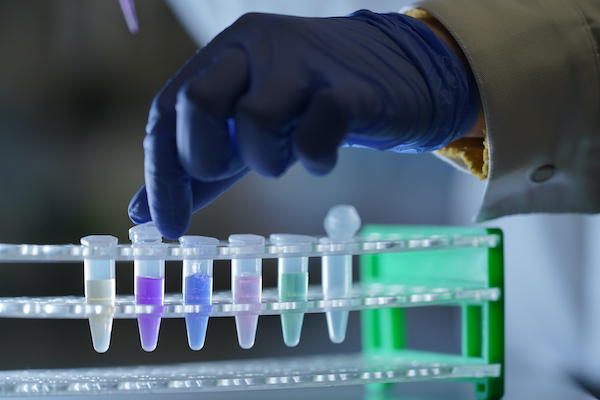START FNP scholarship for three PhD students from the Faculty of Biology, University of Warsaw

27 05 2025
Three doctoral students from the Faculty of Biology at the University of Warsaw have become laureates of the START competition of the Foundation for Science in Poland. The awardees were: Paulina Kamińska (neurobiology), Wojciech Pawlak (pelaobiology) and Michał Świrski (bioinformatics). Congratulations!
Paulina Kamińska, a PhD candidate at the Warsaw-4-PhD Doctoral School, is conducting her research within the Cellular Neurobiology Research Group at the Faculty of Biology, University of Warsaw, as well as the Laboratory of Molecular Neurobiology at the Nencki Institute of Experimental Biology. Her doctoral work focuses on the mechanisms responsible for shaping the pro-tumorigenic properties of microglia in glioma. Last year, she completed a three-month internship at the Institute of Neuropathology at the University of Freiburg in Germany, where she gained experience working with clinical material. Currently, she continues her doctoral project, which aims to better understand the role of the SorLA receptor in shaping the pro-tumorigenic nature of the glioma microenvironment.
Paulina Kamińska has also been awarded the Prof. Wacław Szybalski Distinction, which honors outstanding young scientists conducting research in the fields of biotechnology, genetics, or molecular biology.
Wojciech Pawlak is a PhD candidate at the Institute of Evolutionary Biology, working within the Paleobiology and evolution research group. He specializes is the evolution of bony fishes and aquatic ecosystems, which have been the focus of his research since the beginning of his scientific career. He is a graduate of the Faculty of Biology and the Faculty of Geology within the Inter-faculty Individual Studies in Mathematics and Natural Sciences (MiSMaP) programme. He is the co-author of eight scientific publications, including three as the lead author. He is also one of the organizers of annual paleontological excavations jointly conducted by the Institute of Evolutionary Biology UW and the Institute of Paleobiology of the Polish Academy of Sciences. His research to date has focused primarily on the comparative anatomy of early ray-finned and lungfishes.
Beyond ichthyology, he is a co-discoverer of three new fossil vertebrate assemblages dated to 300–200 million years ago, located in the Upper Silesia and Kłodzko regions. He is also a co-author of the discovery of keratinized skin in close relatives of amniotes. His work applies an interdisciplinary approach at the interface of biology and geology, using vertebrate fossils as proxies for reconstruction of ancient environmental conditions, such as salinity and climate. He is currently preparing to defend his doctoral dissertation under the supervision of prof. Jerzy Dzik, focusing on gars and their extinct relatives, studied using X-ray computed tomography. Since 2024, he has been leading his own research project funded by the National Science Centre (NCN) under the Preludium program, titled “The origin of modern ray-finned fish”.
Michał Świrski has been working in Prof. Joanna Kufel’s lab at the Institute of Genetics and Biotechnology, UW since his undergraduate studies. He is currently pursuing a PhD under her supervision, with a thesis titled “Cryptic Translational Events Revealed with Ribosome Profiling and Massive Data Reanalysis.” His work utilizes vast collections of publicly available high-throughput datasets to detect and describe rare translational events. One of the key outcomes of this project is RiboCrypt, a bioinformatics platform that provides interactive visual access to nearly all publicly available ribosome profiling datasets. He is also the author of the conceptual Ribosome Decision Graph model, developed in collaboration with the research groups of Prof. Pavel Baranov (University College Cork) and Prof. Eivind Valen (University of Bergen). He has completed short-term research visits to both institutions and maintains continuous collaboration with them. His current research plans focus on applying ribosome profiling to characterize ribosome composition and heterogeneity, as well as investigating the translational dynamics of therapeutic transcripts.
The full list of awardees is available on the website of the Foundation for Polish Science.